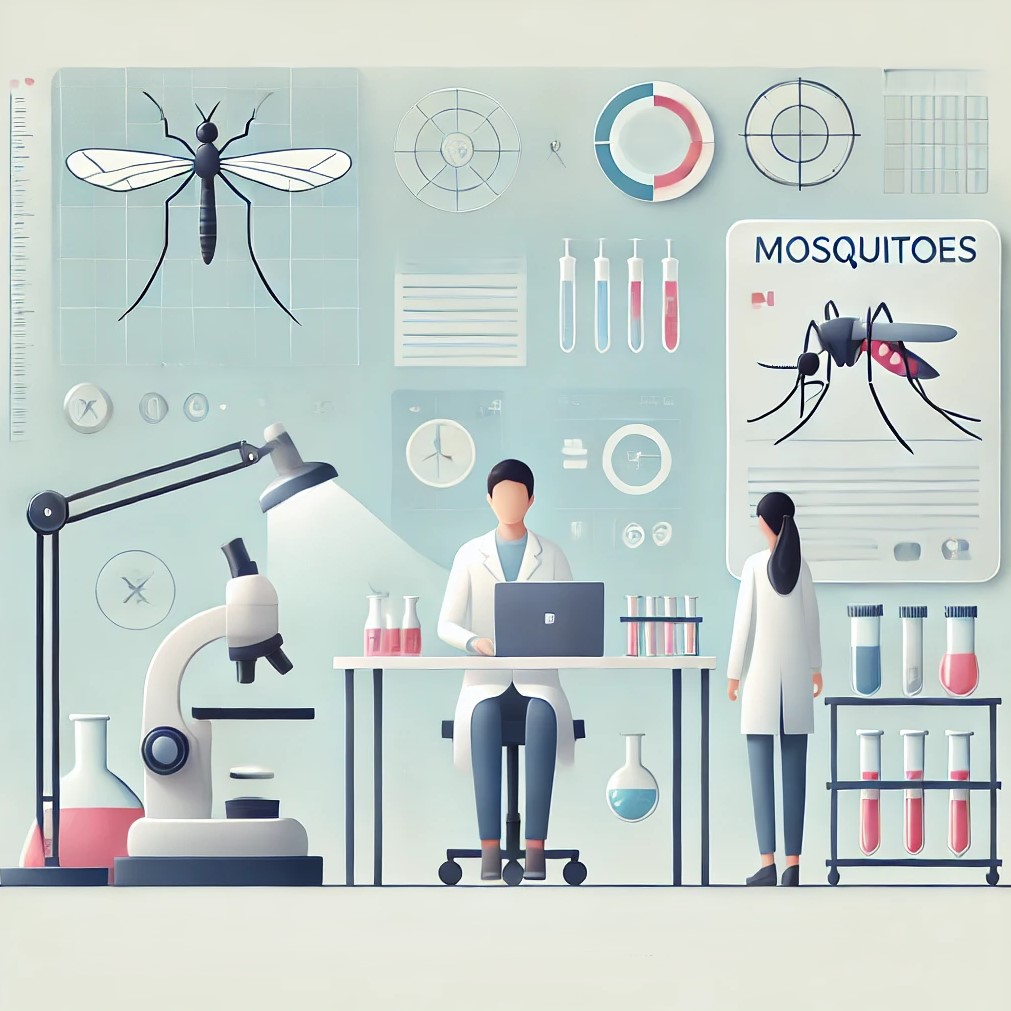
Despite their small size, mosquitoes are responsible for transmitting some of the world’s most devastating diseases, such as dengue, malaria, Zika, and chikungunya. However, recent advances in genetic research, tracking technology, and control methods are opening new doors in the fight against these vectors.
The Importance of Mosquito Research
Mosquitoes’ ability to adapt and survive in diverse environments has posed significant challenges for disease control programs. Recent studies have deepened our understanding of their biology, interaction with pathogens, and the evolutionary dynamics of their populations. This knowledge has led to the development of innovative technologies such as genetic editing, remote sensing, and protein-based vaccines.
Capture and Monitoring Methods
Efficient mosquito capture is essential for entomological studies and population control. Some of the most commonly used methods include:
- Adult traps: Enhanced with chemical and light attractants.
- Release and tracking of marked mosquitoes: Helps study movement patterns and behavior.
- Remote sensing: A revolutionary tool that uses geospatial data to identify high-density mosquito areas.
The design of georeferenced studies and the use of specialized light traps have significantly improved our ability to monitor mosquito behavior and life cycles.
Advances in Genetics and Molecular Biology
Genetic tools, such as CRISPR/Cas9, have revolutionized mosquito research. Some of the most significant advancements include:
- Genetic editing: Altering key genes to reduce fertility or inhibit pathogen transmission. For instance, Anopheles gambiae mosquitoes have been modified to reduce their reproductive capacity.
- RNA interference (RNAi) techniques: These have been used to explore essential biological processes like copulation, embryogenesis, and insecticide resistance.
- Modification of coloration and morphological adaptation genes: This has facilitated understanding mosquito interactions with their environment.
Genetic Control: A Revolutionary Tool
Genetic control methods offer sustainable and specific solutions to reduce populations of disease-transmitting mosquitoes. Some of the most innovative techniques include:
- Precision-Guided Sterile Insect Technique (pgSIT):
- Uses CRISPR to create sterile males and non-flying females.
- Self-limiting and does not persist in the environment.
- Gene drive technology:
- Introduces genetic traits that spread quickly, eliminating specific populations.
- Currently being tested in Africa to combat malaria.
- Wolbachia bacteria:
- Blocks virus transmission in mosquitoes.
- Significant reductions in dengue, Zika, and chikungunya cases have been observed in intervention areas.
Impact of Climate Change
Climate change is altering the geographic distribution and population dynamics of mosquitoes. As global temperatures rise, species like Aedes aegypti are colonizing new areas, increasing disease risk. Predictive models combining environmental and epidemiological data can anticipate outbreaks and guide intervention strategies.
Advances in Vaccines and Treatments
Recent studies have identified specific proteins, such as antigen-5, that are essential for mosquito survival. This has led to the development of:
- Protein-based vaccines: Designed to prevent female mosquito bites, thereby reducing pathogen transmission.
- Therapeutic treatments: Trials in primates have shown promising results in reducing malaria transmission.
Ethical and Regulatory Challenges
The implementation of technologies like genetic editing presents significant ethical challenges. Ensuring biosecurity and public acceptance of these technologies, especially in affected communities, is crucial. Additionally, the release of genetically modified mosquitoes requires rigorous control to avoid negative ecosystem impacts.
International Collaborations and Research Networks
Fighting mosquitoes requires a global approach. Organizations like the World Health Organization have promoted vector control programs, while initiatives like Target Malaria are working in Africa to implement genetics-based solutions.
Future Directions and Perspectives
Artificial intelligence (AI) promises to improve epidemiological surveillance systems. Neural networks can predict transmission patterns and assist in designing more effective control strategies. However, future research should focus on:
- Developing more sustainable control methods.
- Evaluating the ecological impact of genetic interventions.
- Strengthening collaboration among scientists, governments, and communities.
Advances in mosquito research have transformed our ability to combat the diseases they transmit. From innovative genetic technologies to AI applications, the future of mosquito control looks promising. However, success will depend on a multidisciplinary approach that integrates science, ethics, and global collaboration.
Do you want to learn more about how to protect your home or business from mosquitoes? At Eco Fauna Control, we offer personalized and effective solutions. Contact us today!
